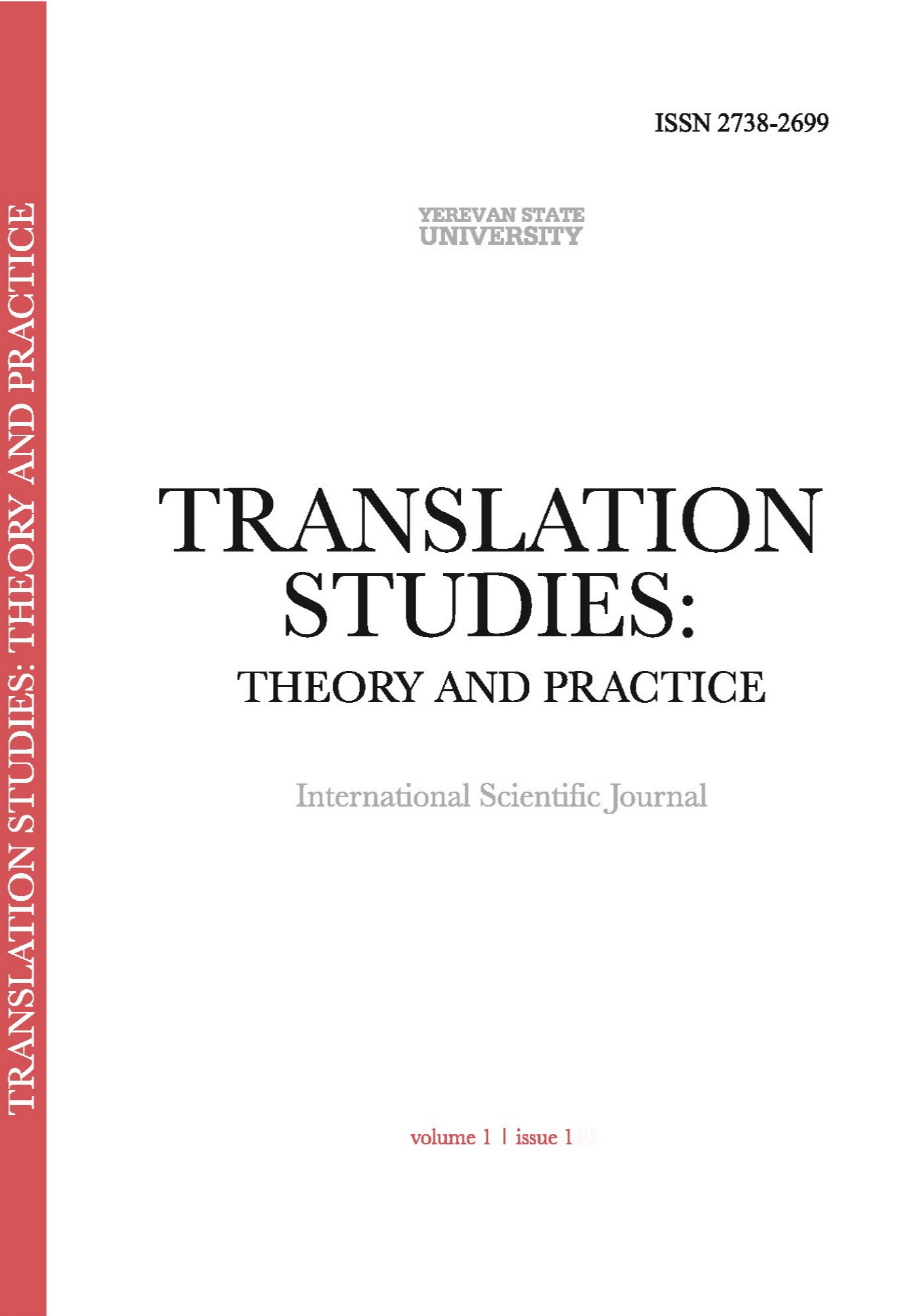A Pragmatic-Based Approach to Translation: Mi Dai?/Dammi! And Дай! In the Parallel Russian-Italian Corpus
DOI:
https://doi.org/10.46991/TSTP/2021.1.1.53Keywords:
pragmatics, Russian, Italian, parallel corpus, requestAbstract
This essay focusses on how the knowledge of cross-cultural pragmatics can provide a theoretical background for the translation practice, especially in the search for equivalent functions. This study concentrates on the Russian and the Italian languages and on the speech act of requesting, in that not only is request amongst the most frequent speech acts, but also it is realised in different ways in the two target languages. In particular, whereas imperative is a common strategy used in Russian requests, its presence is restricted to informal bilateral requests in the Italian-speaking contexts.
In order to investigate how the imperative is distributed in requests translated from Russian into Italian and vice versa, and whether such translations are appropriate from a pragmatic perspective, in our study we have analysed the occurrences of the imperative request “give (me)!” in Russian (дай!) and Italian (dammi!) in the parallel Russian-Italian corpus of the National Corpus of the Russian Language.
References
Baker, Mona. 1992. In Other Words: A Coursebook on Translation. London: Routledge.
Berger, T. 1997. “Alte und neue Formen der H.flichkeit im Russischen: eine korpusbasierte Untersuchung h.flicher Direktiva und Kommissiva.” In Slavistische Linguistik. (eds.) P. Kosta and E. Mann, 9-29. Munich: Otto Sagner.
Betsch, М. 2003. “Questions as Indirect Requests in Russian and Czech.” In Meaning through Language Contrast. Vol. 2. (eds.) K. M. Jaszczolt and K. Turner, 277-99. Philadelphia: John Benjamins.
Blum-Kulka, S., J. House, and G. Kasper. 1989. Cross-cultural pragmatics: Requests and apologies. Advances in discourse processes. Norwood, NJ: Ablex.
Brehmer, B. 2006. “Beri eščë ogurčik! Diminutiva und H.flichkeit im Russischen.” In Die Welt der Slaven 51(1), 23–48.
Brown, Penelope, and Stephen C. Levinson. 1987. Politeness. Some Universals in Language Usage. Cambridge: Cambridge University Press.
Bruti, S. 2006. “Cross-cultural pragmatics: the Translation of Implicit Compliments in Subtitles.” In The Journal of Specialized Translation 6, 185-197.
Dorodnych, A. 1995. “A Study of Requests in English, Russian and Ukrainian.” In Papers and Studies in Contrastive Linguistics 30, 55–63.
Goffman, Erving. 1967. Interaction Ritual: Essays on Face-to-Face Interaction. New York: Double Day Anchor Books.
Hervey, Sándor G. J. 1998. “Speech Acts and Illocutionary Function in Translation Methodology.” In The Pragmatics of Translation. (ed.) Leo Hickey, 10-24. Clevedon: Multilingual Matters.
House, Juliane. 1997. Translation Quality Assessment. A Model Revisited. Tübingen: Narr.
Ogiermann, Eva. 2009. “Politeness and In-directness across Cultures: A Comparison of English, German, Polish and Russian Requests.” In Journal of Politeness Research: Language, Behaviour, Culture 5, 189–216.
Márquez-Reiter, R. 2000. Linguistic Politeness in Britain and Uruguay: A Contrastive Study of Requests and Apologies. Amsterdam, Netherlands: Benjamins.
Mills, Margaret H. 1992. “Conventionalized Politeness in Russian Requests: a Pragmatic View of Indirectness.” In Russian Linguistics 16, 65–78.
Nuzzo, Elena. 2007. Imparare a fare cose con le parole: richieste, proteste, scuse in italiano lingua seconda. Perugia: Guerra Edizioni.
Rathmayr, Renate. 1996. Pragmatik der Entschuldigungen. Vergleichende Untersuchung am Beispiel der Russischen Sprache und Kultur. Köln: Böhlau Verlag.
Rossi, Giovanni. 2012. “Bilateral and Unilateral Requests: The Use of Imperatives and mi X? Interrogatives in Italian.” In Discourse Processes 49 (5), 426–458.
Rue, Y. J., and G. Q. Zhang. 2008. Request Strategies: A Comparative Study in Mandarin Chinese and Korean. Amsterdam, Netherlands: Benjamins.
Saxena, Anju. 2002. “Request and Command in Kinnauri: The Pragmatics of Translating Politeness.” In Linguistics of the Tibeto-Burman Area 25, 185–193.
Searle, John R. 1969. Speech Acts. An Essay in the Philosophy of Language. Cambridge: Cambridge University Press.
Larina, T.V. 2003. Kategoriya Vejlivosti v angliiskoi i russkoi kommunikativnyh kul'turah. Moscow: Izd-vo RUDN.
Downloads
Published
Issue
Section
License
Copyright (c) 2021 Daniele Artoni

This work is licensed under a Creative Commons Attribution-NonCommercial 4.0 International License.





